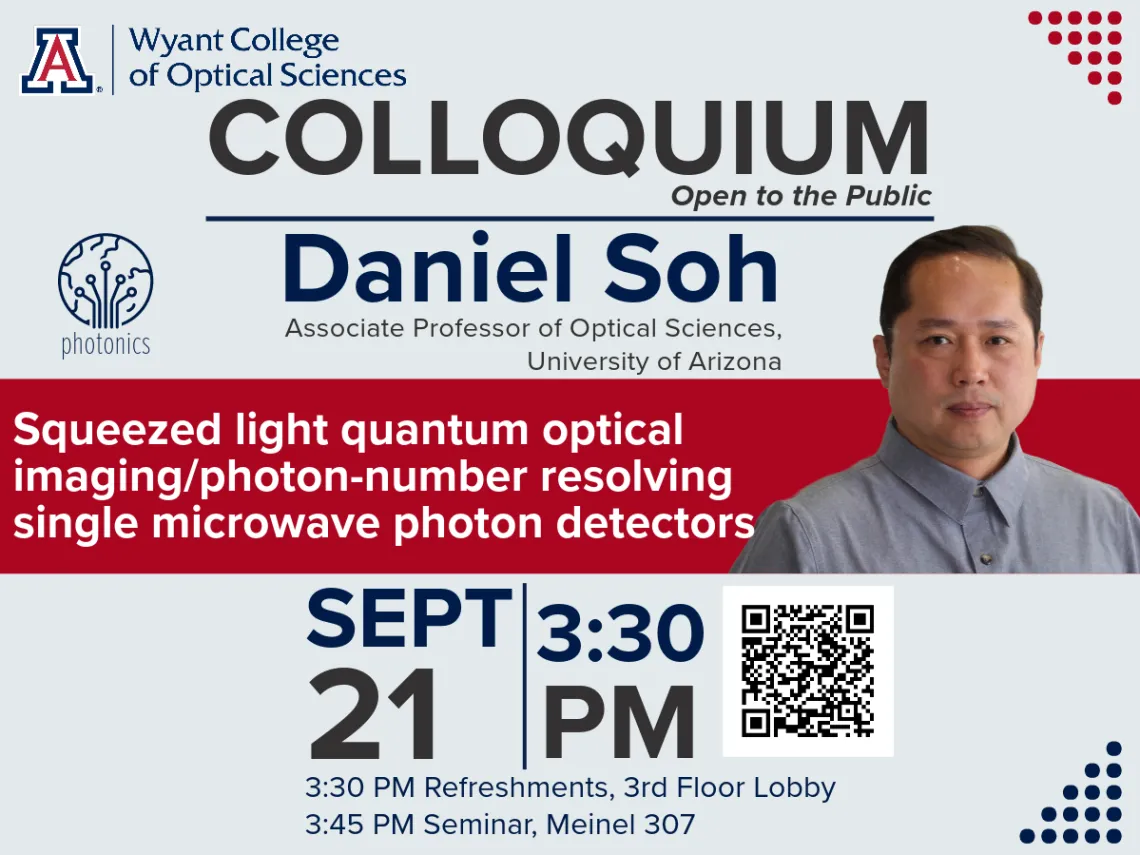
When
Where
Title
Squeezed Light Quantum Optical Imaging/Photon-number Resolving Single Microwave Photon Detectors
Abstract
This colloquium comprises two segments: (I) Quantum Super-resolution Imaging with Squeezed Light: This approach to imaging harnesses the quantum characteristics of non-classically engineered probe light. We specifically leverage the “squeezing” property of light, which reduces its quantum noise, and the “entanglement” property, which correlates quantum measurements. These features enhance the quality of the reconstructed image. In this segment, I will showcase how we can achieve super-resolution, surpassing the limitations set by Rayleigh diffraction in conventional imaging, using entangled multimode squeezed light. Compared to traditional imaging with classical light probes, quantum imaging with squeezed light markedly improves resolution. (II) Single-Photon Counting Detectors for RF (~GHz) Light Photons: Here, I will introduce cutting-edge single-photon counting detectors for GHz-frequency light photons. These detectors employ unique topological materials and Majorana fermion particles. This groundbreaking approach to RF photon detection offers the potential to revolutionize detection capabilities for low-energy light photons.
Bio
Daniel Soh is an associated professor at Wyant College of Optical Sciences, the University of Arizona. He obtained two PhD degrees, the first in high power fiber lasers from the Optoelectronics Research Centre at the University of Southampton, UK, and the second in quantum dynamic systems from the Applied Physics Department at Stanford University. With a rich background in both industry and national laboratories, he brings a breadth of knowledge and expertise to the position. His prior experience includes serving as an R&D manager in a Silicon Valley startup and large corporations, and a fourteen-year tenure as a member of technical staff at Sandia National Laboratories, California. His areas of interest and specialization include quantum sensing and quantum networks, specifically those based on dynamic open quantum systems. He has thirteen granted US patents.
Visit our website for future lecture dates and speaker information
For a list of our archived lectures
